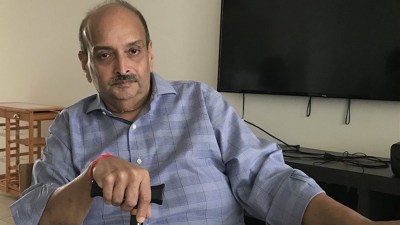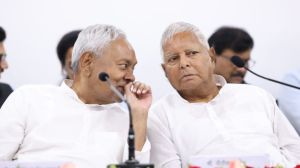Patent Act awaits panel’s nod
NEW DELHI, Nov 19: Even as the BJP Government remains divided and has deferred a decision on the issue of changes in the Patent Act, it is u...

NEW DELHI, Nov 19: Even as the BJP Government remains divided and has deferred a decision on the issue of changes in the Patent Act, it is unlikely to take a decision until a core group of MPs in the Standing Committee on Commerce submits its report. The Group’s report is expected to warn the Government against putting pipeline protection in place and will suggest specific measures to protect India’s interests.
This report will add weight to the stand of some members of the Group of Ministers which were advocating that India skip pipeline protection and go directly to product patent protection.
The multi-party group is headed by Dr Ashok Mitra, and its members are former Industry Minister Murasoli Maran, Vayalar Ravi of Congress I, Dr Gopalrao Patil of BJP and V K Chinnaswamy of the AIADMK.
The Government cannot afford to ignore the views of this group as the final changes in the Patent Act will have to be passed by the Parliament. The MPs are still finalising the report and will be presented in thewinter session of the Parliament. “We can’t dictate to the Government, but we have informed them about our report. I hope the Government considers it before taking any final decision,” Dr Mitra told the Indian Express.
The report will be crucial to the final decision by the Government but is unlikely to hold any surprises. It will not be too different from the stand taken by the Standing Committee. In its report prepared in July this year, the Committee had expressed its apprehensions on granting exclusive marketing rights (EMR) as a pipeline protection measure. The Committee felt that this was “arcane and…ought to be strongly resisted.”
While the Committee said that the national interest should be protected, it said that the Government should not take an approach of confrontation to the legal changes required under WTO. “Given out country’s uncertain balance of payments position and the instability marking the external value of the rupee, the Government has little alternative but to avoidmajor confrontations on trade related issues with international trade and financing institutions as well as the developed industrial countries,” the report said.
The basic concerns about the pipeline protection are about exclusive marketing rights. Under the WTO commitments, all members have to introduce product patent. Developing countries such as India which have process patents have been given a deadline till 2005 to make the legal changes. But until then, they have to allow EMR under which the an applicant will have the exclusive rights to sell the products in India. The MPs are worried that the since the EMR does not allow for compulsory licensing, the Government will not have the right to take over the distribution of the drug for public interest. Also, there is no examination of the application under EMR, the drug companies could try to sell which are already under public domain.
Another member of the group Vayalar Ravi expressed his worries about the issue being decided by bureaucrats alone. “Wehave taken the views of different interest groups like NGOs and senior people like G V Ramakrishna on the issue. These views have to be considered before arriving at any decision,” he said.
Insight
While the Forum of Parliamentarian on Intellectual Property has yet to take a stand on the pipeline protection issue, the National Working Group on the Patent Law has come out strongly against granting of EMRs in India. This group which is has NGOs, scientists, former bureaucrats and technocrats as members wants the TRIPS agreement should be reviewed as provided under the WTO Ministerial declaration of May 1998. It wants the applications for product patents filed with the Government since 1995 for EMR to be examined and process patents be issues under the current act.



- 01
- 02
- 03
- 04
- 05




























